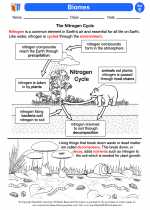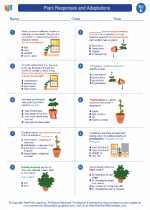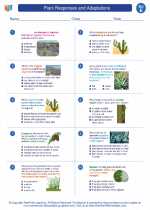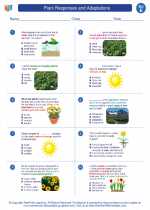Astronomy
What is Astronomy?
Astronomy is the scientific study of celestial objects such as stars, planets, comets, and galaxies, as well as the phenomena that originate outside the Earth's atmosphere.
Branches of Astronomy
Astronomy is divided into several branches, including:
- Observational Astronomy: Involves observing celestial objects and phenomena using telescopes and other instruments.
- Theoretical Astronomy: Focuses on developing and testing models and theories to explain astronomical phenomena.
- Astrophysics: Applies the principles of physics to understand the behavior and properties of celestial objects.
- Cosmology: Examines the origins, evolution, and eventual fate of the universe as a whole.
Key Concepts in Astronomy
Key concepts in astronomy include:
- Stars: Luminous spheres of plasma held together by gravity, which emit energy through nuclear fusion.
- Planets: Celestial bodies that orbit a star, have sufficient mass for their self-gravity to overcome rigid body forces, and have cleared their neighboring region of planetesimals.
- Galaxies: Vast systems of stars, gas, dust, and dark matter bound together by gravity.
- Constellations: Patterns formed by prominent stars within a specific region of the sky, often named after mythological figures or animals.
- Black Holes: Regions of space where the gravitational pull is so strong that nothing, not even light, can escape.
Tools and Techniques
Astronomers use a variety of tools and techniques to study the universe, including:
- Telescopes: Optical instruments that gather and focus light to observe distant objects.
- Spectroscopy: Analyzing the light emitted or absorbed by objects to determine their composition, temperature, and motion.
- Space Probes: Uncrewed spacecraft that explore distant planets, moons, and other celestial bodies.
- Radio Telescopes: Instruments that detect radio waves from celestial objects, providing valuable information about the universe.
Studying Astronomy
To succeed in studying astronomy, it's important to:
- Develop a strong foundation in mathematics and physics, as these are essential for understanding the principles of astronomy.
- Stay updated with the latest discoveries and advancements in the field through scientific journals, books, and reputable online sources.
- Visit planetariums, observatories, and science museums to gain practical exposure to astronomical concepts and phenomena.
- Participate in astronomy clubs, workshops, and events to engage with fellow enthusiasts and professionals in the field.
Conclusion
Astronomy offers a fascinating glimpse into the vastness and complexity of the universe, providing insights into the nature of celestial objects and the fundamental forces that govern the cosmos.
.◂Science Worksheets and Study Guides Fifth Grade. Plant Responses and Adaptations
Study Guide Plant Responses and Adaptations
Plant Responses and Adaptations  Activity Lesson
Activity Lesson Biomes
Biomes  Worksheet/Answer key
Worksheet/Answer key Plant Responses and Adaptations
Plant Responses and Adaptations  Worksheet/Answer key
Worksheet/Answer key Plant Responses and Adaptations
Plant Responses and Adaptations  Worksheet/Answer key
Worksheet/Answer key Plant Responses and Adaptations
Plant Responses and Adaptations  Vocabulary/Answer key
Vocabulary/Answer key Plant Responses and Adaptations
Plant Responses and Adaptations  Vocabulary/Answer key
Vocabulary/Answer key Plant Responses and Adaptations
Plant Responses and Adaptations 

 Activity Lesson
Activity Lesson
 Worksheet/Answer key
Worksheet/Answer key
 Worksheet/Answer key
Worksheet/Answer key
 Worksheet/Answer key
Worksheet/Answer key
 Vocabulary/Answer key
Vocabulary/Answer key
 Vocabulary/Answer key
Vocabulary/Answer key

The resources above cover the following skills:
Life Science
Interdependence - A. Plants and animals, including humans, interact with and depend upon each other and their environment to satisfy their basic needs. B. Both human activities and natural events can have major impacts on the environment. C. Energy flows from the sun through producers to consumers.
Compare and contrast adaptations displayed by animals and plants that enable them to survive in different environments such as life cycles variations, animal behaviors and physical characteristics.